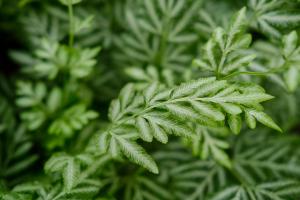Can We Water Plants with Seawater?
Water is essential for all living things, including plants. It helps plants to grow and nourish, stimulating photosynthesis, and distributing nutrients throughout the plant. However, not all water sources are suitable for watering plants. Seawater, for instance, is known to contain high salinity levels, which can be harmful to plants if used as a primary water source. So, can we water plants with seawater?
The Effect of Seawater on Plants
Seawater contains approximately 35 grams of salt per liter. The high salinity level in seawater can have a damaging effect on plants, mainly by affecting the water balance in plant cells. When plants absorb saltwater, it increases the concentration of ions in the cells, drawing too much water from the cells, leading to dehydration and potentially resulting in the death of the plant.
Furthermore, saltwater can alter the pH of soil, making it more acidic, leading to the solubilization of toxic minerals such as aluminum or iron, which can further damage the plant's root system.
Plants that can Tolerate Seawater
Despite the potential damage that seawater can cause to many plants, there are some species that have adapted to tolerate high salinity levels. These plants are called halophytes, and they have evolved mechanisms to maintain their water balance in saline soil or water.
Some well-known halophytes include succulents such as cacti, mangroves, sea purslane, and seablite. However, these plants have uniquely evolved mechanisms to deal with the high salinity levels of seawater, making them unsuitable for most agricultural applications.
Using Seawater in Agriculture
The use of seawater in agriculture is not a new concept. Many ancient civilizations, such as the Mayans and the Aztecs in South America, used seawater to irrigate their crops. In modern times, the use of seawater has been considered as a potential solution to water scarcity in some arid areas.
However, the widespread use of seawater for agriculture is not yet a practical option. For one, desalination is a costly process and requires significant amounts of energy. Additionally, the use of seawater can increase soil salinity levels, leading to an accumulation of toxic minerals, harmful to plants that cannot tolerate high salt levels.
Conclusion
In conclusion, while there are some plants that can tolerate high salinity levels, seawater is generally not suitable for watering plants due to the potential damage it can cause to most plant species. The use of seawater in agriculture is a promising idea, but it requires further research and development of sustainable and cost-effective processes. Until then, it is best to use freshwater or treated wastewater for watering plants.

 how many times do yo...
how many times do yo... how many planted tre...
how many planted tre... how many pine trees ...
how many pine trees ... how many pecan trees...
how many pecan trees... how many plants comp...
how many plants comp... how many plants can ...
how many plants can ... how many plants and ...
how many plants and ... how many pepper plan...
how many pepper plan...
































